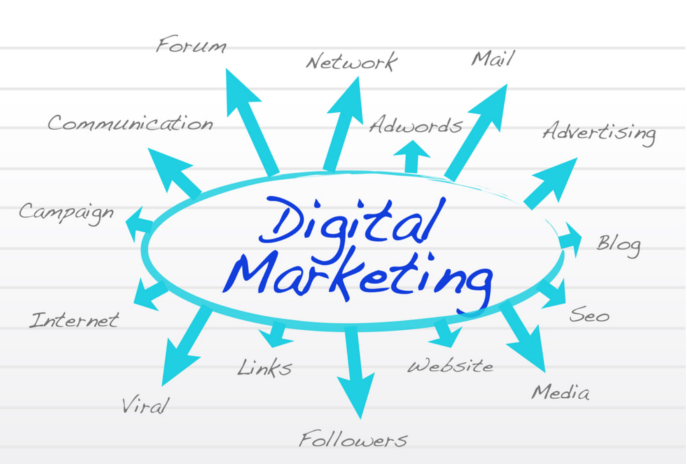5 Tips to Improve Your Social Media Strategy
/You’ve probably seen articles about social media fails: Someone posts to the wrong account; a nationally-known company goes on a seemingly drunken rant during a national sports event (turns out, though, that it was a stunt!—some say it’s brilliant; others still don’t believe it was planned); or a business accidentally copies and pastes a pornographic image as a response to a customer complaint. All this considered, you, as a small business owner, probably feel pretty confident that you won’t commit a gaffe of this caliber any time soon. Who could be so careless, after all? But that doesn’t mean that you’re in the clear. You might be trying to grow your audience and engagement, but what if you’re just not seeing the results you want? What if you’re putting in the time and effort, and yet every post falls flat? Worse, what if you’re accused of spamming or being bothersome?
Well, this means that you could be making some mistakes of your own. While you’re almost certainly not in the same boat as those hard-hitting brands mentioned above, your small business needs to act like a big player to get ahead in the social media world. In this post, we’ll cover a few things you can do to improve your social media strategy—by tackling common mistakes head-on.
- Stop posting at weird times. Are you tweeting late into the night or before people have gone to work in the morning? Chances are that you’re not getting the audience you want… because they’re sleeping. Are you posting to LinkedIn during normal work hours? Your post is going to be looked over—most professionals don’t go on LinkedIn until after work hours! Meanwhile, Facebook fans are active in the morning and afternoon, while Pinterest users tend to be night owls.
For more information on the best and worst times to post on social media, check out the link below, and use it as a guide so that you can easily start to reach more fans: Best and Worst Times to Post to Social Media
- Please don’t try to leech attention from other campaigns and companies. There is an undeniable vitriol reserved for companies that try to do this. They’ll often take a trending hashtag and put it in a tweet that has nothing to do with that topic, which puts their post directly in the middle of a trending conversation. It’s pretty much like when you’re having fun with a group of friends, and suddenly some random person comes up and says something like “Did you guys know I’m a DJ? No one cares. In fact, it’s just plain rude. So if you’re trying to jump on the bandwagon by desperately using trending hashtags that don’t apply to your products and services, just stop. Come up with your own unique hashtag to use in your social media strategy and invite friends and followers to join in; or, you can always look for trending conversations that allow your business to actually contribute relevant thoughts!
- If you’re not utilizing visual media, you need to start. Are you just posting self-promotional updates such as “We’re open!” or “New special!”, or maybe even just a status consisting of a phone number? (Yes, we’ve seen this.) Well, it’s not drawing the attention you want and need for your social media strategy. Think about it: When you’re scrolling through your social media sites, do you stop to read every update? Of course not. Which ones do you automatically pause at? More than likely, the answer is the ones with photos or videos. So spice up your posts with pictures! If you’re updating about a new product, post a picture of a happy customer with it. If you’re holding an event, come up with a digital flyer to announce it. There are lots of things you can do to ensure your posts stand out in a sea of text. For ideas, visit: Pictures on Social Media via Klout.
- You’re not updating enough (or consistently enough). When was the last time you updated your Facebook account? How about that Twitter account? If it was more than a week ago, or—cringe—you can’t even remember when you last posted, then it’s time to evaluate your goals. Your social media strategy hinges on your consistency. You might not see a lot of engagement or sharing right away. That’s to be expected. But that doesn’t mean you should stop. You might feel like you’re playing to an empty room, but that’s simply part of growing your social media sites! And, if you update often, search engines will pick up on this and rank your social media sites more consistently. Social media sites do not contribute to the SEO rankings of your main site, but think of it this way: If someone finds your Facebook page before they find you, they can still get in contact with you if they like what they see. And a Facebook wall full of informative, insightful posts is a great way to hook them!
- The voice you use for your company isn’t consistent. There are far too many incidences of small business owners mixing their personal lives with their professional ones. And in some cases, it’s great to add a humanizing element to your posts: For example, connecting with the community, getting involved with non-profits, or celebrating holidays with customers and clients are all acceptable ways to participate. But if you’re mad about who lost last night’s game or are irritated with a customer or client, remember this: Do. Not. Update. Everything you write on the internet can be found again and used against you in the worst possible scenario. If you respond to an angry customer in an inappropriate way, or if you go on a rant that is construed as offensive, you will have a lot of damage to try to repair when someone accuses you of wrongdoing. And they’ll have the screenshots to prove it. And never, ever post about political or religious thoughts. Keep those on your personal profile—nothing brings out the anger and trolling like politics and religion.
We hope you’ve found these social media tips helpful! It takes a while to learn the ropes, and developing an effective and manageable social media strategy can be tough. But with a little practice, you too can enjoy connecting with customers and reaching out to new fans.
If you want assistance in any way, feel free to contact Internet Local Listings. We have a number of packages available to help you get the most out of your social media and business listings on the internet!
Check out a video here, and share with friends and followers!
[youtube https://www.youtube.com/watch?v=53aSuq-DhIY]













